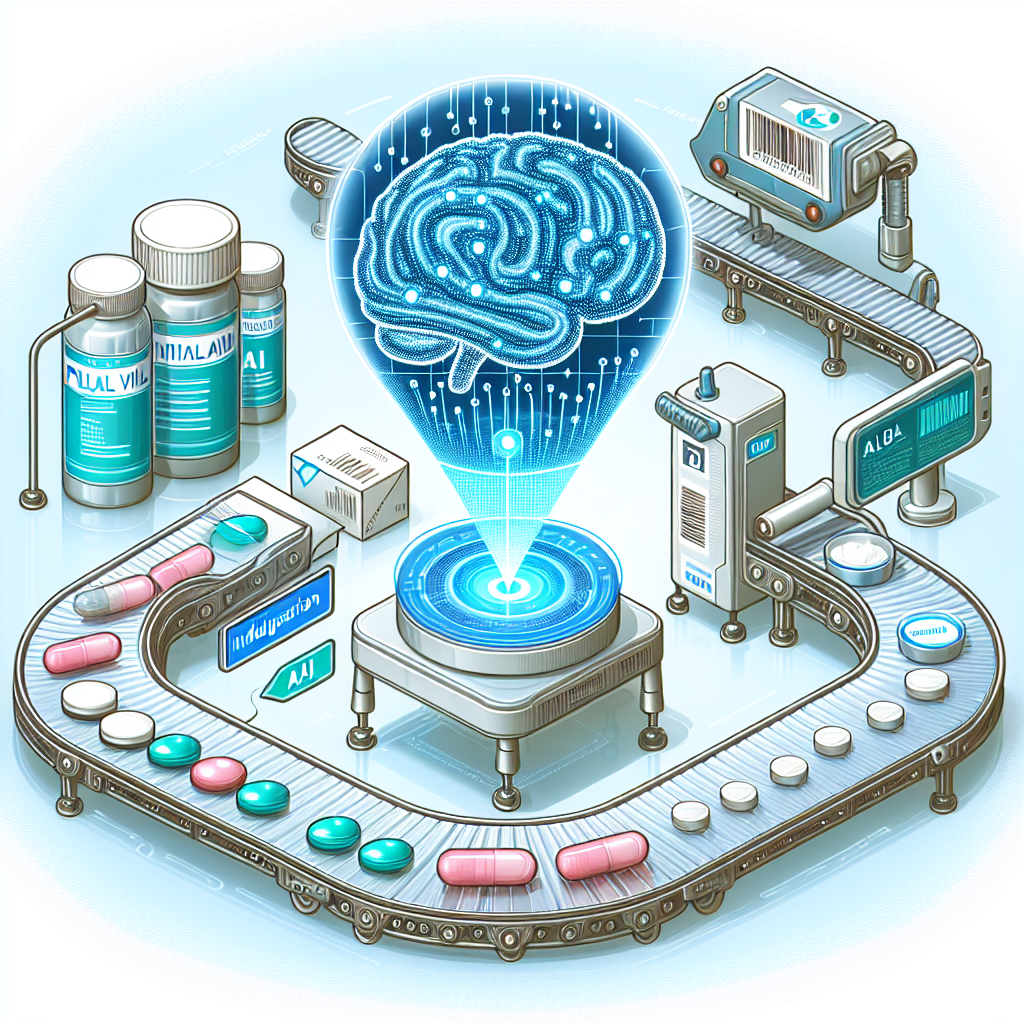Artificial Intelligence (AI) is rapidly transforming various industries, and the healthcare sector is no exception. In recent years, AI has been increasingly used in drug delivery systems to improve the efficiency and effectiveness of drug delivery processes. AI-powered drug delivery systems have the potential to revolutionize the way medications are administered, leading to more personalized and precise treatments for patients. In this article, we will explore the role of AI in drug delivery systems and its impact on the future of healthcare.
What is AI in Drug Delivery Systems?
AI refers to the simulation of human intelligence processes by machines, particularly computer systems. In the context of drug delivery systems, AI technologies are used to optimize the delivery of medications to patients. This includes various aspects of drug delivery, such as drug formulation, dosing, administration, and monitoring.
One of the key advantages of AI in drug delivery systems is its ability to analyze vast amounts of data and identify patterns that may not be apparent to human researchers. By using machine learning algorithms, AI systems can predict how a particular drug will behave in the body, how it will interact with other medications, and how it will affect different patient populations.
AI can also help in the development of more precise drug delivery mechanisms. For example, AI-powered nanotechnology can be used to design drug delivery systems that target specific cells or tissues in the body, reducing side effects and improving the overall efficacy of the treatment.
How AI is Transforming Drug Delivery Systems
AI is transforming drug delivery systems in several ways, including:
1. Personalized Medicine: AI can analyze a patient’s genetic makeup, medical history, and lifestyle factors to tailor drug delivery regimens to individual needs. This personalized approach can lead to more effective treatments and better outcomes for patients.
2. Drug Discovery: AI can assist in the discovery of new drugs by analyzing vast amounts of data to identify potential drug candidates. AI algorithms can predict how a drug will interact with the body and how it will affect different patient populations, speeding up the drug development process.
3. Drug Formulation: AI can optimize drug formulations to improve drug stability, solubility, and bioavailability. This can lead to more effective drug delivery systems that deliver the right dose of medication at the right time.
4. Drug Administration: AI can optimize drug administration methods, such as the development of smart drug delivery devices that can monitor patient adherence and adjust drug dosages in real-time. This can improve patient outcomes and reduce the risk of medication errors.
5. Drug Monitoring: AI can analyze patient data to monitor the effectiveness of drug treatments and identify any adverse reactions or drug interactions. This can help healthcare providers make informed decisions about drug dosages and treatment plans.
Challenges and Opportunities
While AI has the potential to revolutionize drug delivery systems, there are several challenges that need to be addressed. One of the main challenges is the need for large amounts of high-quality data to train AI algorithms effectively. This data needs to be diverse and representative of different patient populations to ensure that AI systems can provide accurate and reliable predictions.
Another challenge is the regulatory approval process for AI-powered drug delivery systems. Healthcare regulators need to ensure that AI technologies meet strict safety and efficacy standards before they can be used in clinical practice. This can be a lengthy and complex process that may hinder the adoption of AI in drug delivery systems.
Despite these challenges, there are many opportunities for AI in drug delivery systems. AI technologies have the potential to improve patient outcomes, reduce healthcare costs, and accelerate the drug development process. By leveraging the power of AI, healthcare providers can deliver more personalized and precise treatments to patients, leading to better health outcomes for all.
FAQs
Q: How does AI improve drug delivery systems?
A: AI can optimize drug formulations, personalize treatment regimens, and monitor patient responses to medications, leading to more effective and precise drug delivery systems.
Q: What are the challenges of using AI in drug delivery systems?
A: Challenges include the need for high-quality data, regulatory approval processes, and ensuring the safety and efficacy of AI technologies in clinical practice.
Q: What are the opportunities of using AI in drug delivery systems?
A: Opportunities include improving patient outcomes, reducing healthcare costs, and accelerating the drug development process through the use of AI technologies.

